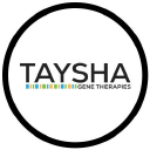Company Description
Overview
Taysha Gene Therapies, Inc. (TSHA) is a clinical-stage biotechnology company specializing in the development and commercialization of adeno-associated virus (AAV)-based gene therapies for severe monogenic diseases of the central nervous system (CNS). With a singular focus on addressing significant unmet medical needs, TSHA is dedicated to the transformation of treatment paradigms for rare and complex neurological disorders through its innovative research and development approach.
Core Business Areas and Pipeline
The company’s primary focus lies in the development of gene therapies that target the genetic root cause of debilitating disorders. Its pipeline includes multiple product candidates designed to address monogenic disorders, including TSHA-101 for GM2 gangliosidosis, TSHA-102 for Rett syndrome, TSHA-103 for SLC6A1 haploinsufficiency disorder, TSHA-104 for Surfeit Locus 1 deficiency, and TSHA-118 for CLN1 disease. Each therapy utilizes advanced AAV vector technology to deliver functional genes directly to vital areas of the CNS, with TSHA-102 at the forefront of their clinical programs, being evaluated through intrathecal administration.
Technology and Innovation
Utilizing a clinically and commercially proven AAV9 capsid, TSHA employs a sophisticated delivery mechanism that incorporates a novel miRNA-Responsive Auto-Regulatory Element (miRARE) technology. This allows for precise, cell-by-cell regulation of gene expression, thereby mitigating risks such as overexpression while ensuring therapeutic benefits. The emphasis on a robust manufacturing process and process validation reflects the company’s commitment to both innovation and quality. Such a technology platform not only enhances safety profiles but also supports the durable, long-term efficacy required for treatments targeting complex CNS disorders.
Market Position and Strategic Collaborations
Taysha Gene Therapies occupies a distinct niche within the broader biotechnology and gene therapy sectors. By focusing exclusively on monogenic diseases of the CNS, the company has carved out a specialized market segment that benefits from a deep understanding of genetic pathologies and regulatory challenges. Strategic collaborations, including significant partnerships with academic institutions like the University of Texas Southwestern Medical Center, enhance TSHA’s R&D capabilities and facilitate the rapid translation of preclinical successes into clinical realities. This collaborative strategy also reinforces their capability to navigate the complexities of clinical development and regulatory requirements.
Clinical Development and Regulatory Strategy
TSHA’s approach to clinical development is characterized by rigorous study designs, transparent reporting of safety and efficacy endpoints, and ongoing dialogue with regulatory agencies. The company’s lead candidate, TSHA-102, which targets Rett syndrome, has received multiple designations such as Regenerative Medicine Advanced Therapy (RMAT), Fast Track, and Orphan Drug status. These regulatory milestones are indicative of TSHA’s commitment to addressing severe unmet medical needs, providing the framework for accelerated clinical pathways while ensuring adherence to safety protocols and robust scientific validation.
Operational Excellence and R&D Focus
Anchored in Dallas, Texas, TSHA leverages its experienced management team and a well-integrated manufacturing process to support both clinical and commercial objectives. Their operations are strategically designed to balance intensive R&D activities with streamlined production capabilities, ensuring that advancements in gene therapy are reflected in continual progress along the clinical trial spectrum. The company’s efforts in maintaining a durable and scalable manufacturing process further underpin its long-term operational integrity and capacity to bring transformative therapies to diverse patient populations.
Scientific Expertise and Industry Impact
With a strong foundation in genetic research and biotechnology, Taysha Gene Therapies exemplifies expertise in CNS gene therapy by implementing advanced scientific methodologies. Its research not only focuses on therapeutic efficacy but also on understanding the deeper genetic mechanisms that drive these rare diseases. The comprehensive approach to safety, efficacy, and regulatory compliance positions TSHA as a resource for scientific insight in the evolving landscape of gene therapy—a field characterized by rapid innovation and complex clinical challenges.
Conclusion
In summary, Taysha Gene Therapies, Inc. stands out for its focused approach in targeting severe monogenic CNS diseases through pioneering AAV-based gene therapy platforms. The company’s robust R&D framework, strategic partnerships, and commitment to scientific excellence form the backbone of its mission to transform treatment paradigms for conditions like Rett syndrome. Designed to appeal to both investors and industry stakeholders, this in-depth overview highlights the company’s operational integrity, clinical progress, and technological innovation in a market where precision medicine and genetic treatments are increasingly central to addressing unmet medical needs.
Stock Performance
Latest News
SEC Filings
No SEC filings available for Taysha Gene Therapies.

